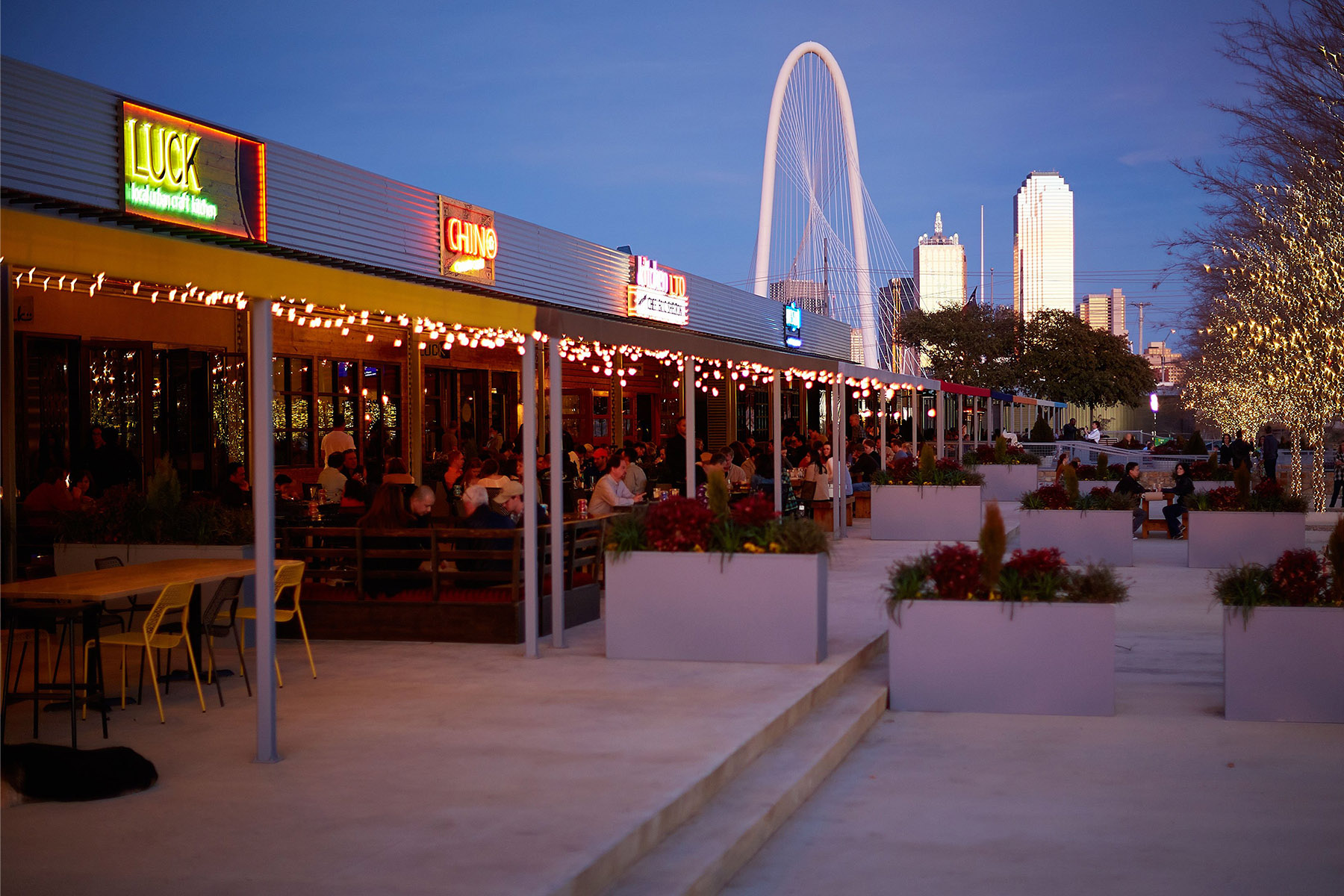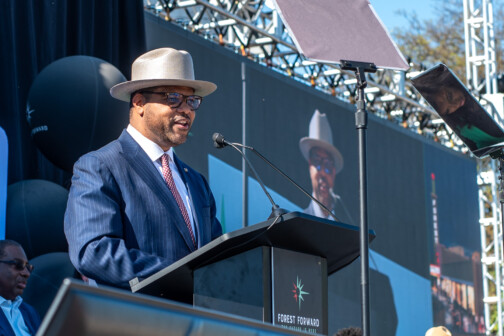A Nebraska-based company has purchased about 35 acres of West Dallas, and a community that fought off a high-rise tower two years ago now finds itself watching warily to see what happens next.
Until recently, West Dallas Investments (helmed by Stuart Fitts, Phil Romano, and Larry “Butch” McGregor) owned this land, which amounts to about 90 properties. WDI was responsible for the Trinity Groves development. The investment group began buying up land in West Dallas in the early 2000s, seeing the potential opportunity streaming in from the Margaret Hunt Hill Bridge that now connects the area to downtown.
“With the Ballpark, Cowboys Stadium, the horse track, DFW and Alliance [airports], common sense just said, in order to expand the city of Dallas’ tax base, you have to expand west,” Fitts told D Magazine in 2013. “So we said, What the hell, we’ll just start buying land out there and we’ll hold it. It’s already at the bottom of the barrel. It had no place to go but up.”
The same article predicted that the three men stood to become even wealthier if their gamble took off. An Urban Land Institute study on Trinity Groves found that when WDI began acquiring land in 2005, they could get it for around $2.50 a square foot. By 2016, it was selling for “over $30 per square foot.” Current listings for where the development sits in the 75212 zip code show lots listed for upwards of $65 a square foot.
This week, the Dallas Morning News reported that Nebraska-based Goldenrod Companies purchased more than half of the 60 acres WDI had amassed.
Brandon Schubert, Goldenrod’s Dallas-based director of investments, said Thursday that WDI “did a great job assembling the land and getting favorable entitlements in place for the future redevelopment of Trinity Groves.”
Goldenrod will work with the design firm OJB on a master plan that will likely aim to create a “walkable, livable urban district” that will include mid- and high-rise multifamily buildings, as well as retail, office, and hospitality spaces. OJB has had a hand in numerous urban development projects, including Klyde Warren Park; Richardson’s State Farm at Cityline, Houston’s East River and Montrose Collective; CityPlace in Spring, Texas; and Union Park in Toronto.
“We are very bullish on the growth of West Dallas over the next decade and look forward to creating a dynamic and well thought out live-work-play neighborhood,” Schubert said.
But will that live-work-play include the communities already living around those parcels?
West Dallas neighbors have watched how development has impacted and changed the area, from the initial buy-up of property near the La Bajada community early on. In 2016, they lived through a humanitarian crisis as landlords sold to developers who promptly evicted their tenants.
“Yes, development can be good and growing the urban core into West Dallas is not intrinsically a bad thing,” we wrote at the time. “But you can’t turn on the city faucet to create the development without turning on another faucet to create options for people who are inevitably going to be displaced.”
Stephanie Champion is the chief community development and policy officer at Builders of Hope, which is involved in affordable housing development in West Dallas. She says there’s “always a concern when an out-of-state investor acquires that much land so close to an established residential neighborhood.” It’s especially concerning when it’s a neighborhood that’s already dealing with rising housing costs.
Last month, BOH unveiled the first pieces of an anti-displacement toolkit that would allow the nonprofit developer to work with the city to identify areas vulnerable to displacement, and then create policies to mitigate it.
In 2012, the city provided more favorable zoning to develop about 89 acres of West Dallas. Subsequent development brought new residents and places to spend money. It also priced out longtime and original residents as their property taxes became unaffordable amid rising land values.
Champion said that usually, the community can use the public rezoning process to start addressing concerns about developers. But thanks to those zoning changes in 2012 (which Champion called “extremely generous” and Schubert called “favorable”), it will be more difficult for the community to fight back—but not impossible.
“The new owners can expect similar resistance if they try to do the same,” Champion said.
If the impassioned plea of one of the community’s leaders is any indication, Champion’s words aren’t a threat—they’re a promise. Raul Reyes Jr., the president of West Dallas 1 (a collective of neighborhood associations and groups), took to Facebook this week to urge residents to follow the lessons they learned once developers turned their eyes toward West Dallas.
“I ask that we have learned lessons from our past and WE better understand our community’s challenges,” he said. “We can’t be passive, we can’t wait, we can’t accept the status quo, and we can’t be complacent.”
Author






